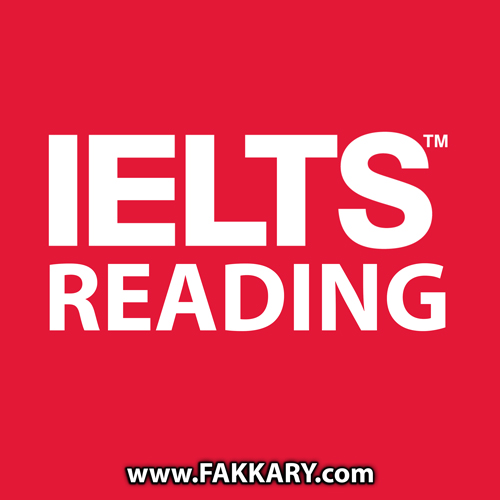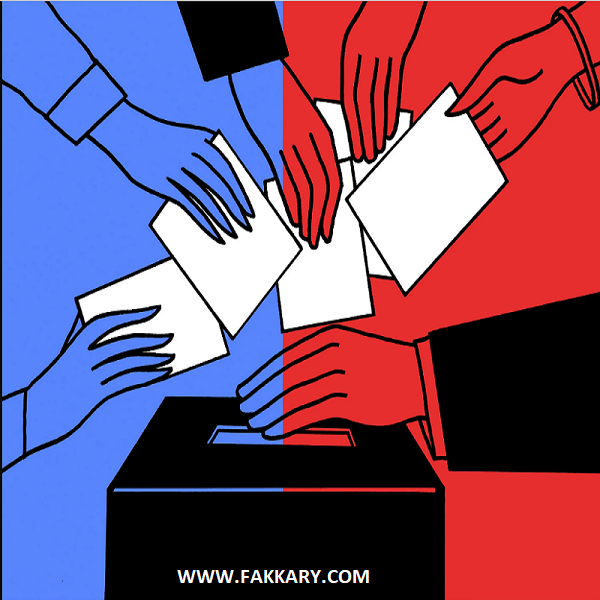آموزش زبان انگلیسی و آیلتس با آکادمی آیلتس فکاری
همونطور که میدونید خوندن مداوم متون انگلیسی میتونه خیلی سریع مهارتهای انگلیسی شما رو بالا ببره. شاید شنیده باشید که خیلیها خوندن کتاب داستان به زبان انگلیسی رو معرفی میکنند. در آزمون آیلتس لازمه که شما در کنار سرعت خوندن ِ بالا، توانایی خوبی در درک مطلب هم داشته باشید. برای این کار لازمه که حداقل روزی یک متن را به طور کامل بخونید و تمرین کنید. آکادمی فکاری در کنار فروش دورههای جامع آموزش مهارتهای آیلتس این امکان رو برای شما فراهم کرده که بتونید متون بیشتری رو بخونید و تمرین کنید. خب بریم که باهم یک متن رو بخونیم و تمرین کنیم:
Elections are Organized to Betray People’s Trust
Election is a decision making process whereby people choose some qualified figures to hold offices. This is the usual mechanism through which democracy is practiced and manifested as well. People have been granted the right to decide on their own fates. Whether this very purpose is fulfilled or not remains an opaque question for all. Unfortunately, people’s demands are rarely heard after their candidates take their offices. People nail-bitingly expect the office bearers to expedite their cases when necessary. The elected ones never do any kind of favor for their poor followers, nor do they remember them.
Every time the elections are heralded, some candidates who are all talk and no action start to throw their hats into the ring and mockingly promise the poor credulous people the moon. They just pay lip service to the people’s rights and proselytize people with their platitudinous remarks. As soon as they hold their offices, things turn out to be quite different. They don’t even take one step forward and despise people, the poor people who are accustomed to turning the other cheek, the people who never gain a hearing for their problems after they ballot for their favorite candidates since the candidates are either unable, namely, or reluctant, mainly, to take no action in meeting their supporters’ demands. People find out that what they had heard was just some empty words. Now they start to show penitence for their day and night efforts in raising their favorite ones to power.
Before the elections, people anticipate the amelioration of the standards of their lives enthusiastically. They suppose the candidates whom they back up are tailor-made for that specific office. They think of these candidates as their ministering angels, unaware of the fact that they will only try to save their own neck. Due to this blatant blunder, passionate supporters throng swarms toward the ballot boxes to pave the way for their fake angels to speed up in occupying the throne of power. People are really ignorant of the fact that as soon as their supposed savers find themselves in power, they break the rules and conspire with other MPs try to play ball with them so as to augment their own position. They will unfaithfully forget that they had sworn an oath of allegiance to side with the people forever. They easily duck the issue when it comes to the crunch. How unscrupulously they pull people’s legs!? In fact, they take people’s lives with kindness.
Candidates adroitly aim their publicity campaigns at the gullible people who honestly believe in what they say. They have the power to influence the people by their rabble-rousing and spell binding lectures. Their use of blandishments does not allow the poor innocent people to set their brains to work and find out that this sort of publicity is sheer demagogy. People can’t easily prognosticate the sinister conspiracy of the majority of the candidates since they do not reveal their true faces, at least not until they are assured that they have taken the offices. People must learn to take even the least important measures on mature consideration and let alone the most important ones. If they choose to participate in the elections absently, they won’t have the right to be regretful. Abstainers feel quite relaxed. They are never conscience-stricken. Understanding that their participation will not lead to any changes; believing that their participation in the elections facilitates the conditions for some people to make a pile for themselves; realizing the fact that they won’t take any measures to provide educational facilities, they find it as milking the ram to take any steps in the favor of such perfidious social event.
Not only are people robbed of their natural rights, but also their humanistic values are bitterly brought into question. People elect one person to represent the whole, not the whole representing one. This elected person must feel to have the duty to be at people’s disposal. It is a real turpitude to sit down and start telling the people a hard-luck story. People won’t believe it if they are told it over and over. It would ease your conscience if you sit at home and enjoy yourself instead of taking part in elections or even worse than that involving yourself in electioneering.
ریدینگ آزمون آیلتس:
همونطور که میدونید آزمون آیلتس آکادمیک و جنرال هر کدوم به ترتیب 3 و 5 متن داره. این متنها دارای درجه سختی متفاوتی هستند و ممکنه برای کسایی که تازه شروع به خوندن ِآیلتس کردن این بخش خیلی سخت و وقتگیر باشه. آکادمی فکاری در کنار دورههای جامع آموزش آیلتس پیشنهاد میکنه که حتما قبل از آزمون آیلتس خوندن و تمرین کردن متون رو در برنامه خودتون قرار بدین. برای تقویت مهارت درک مطلب هم حتما سوالهای درک مطلب رو از هر متن پاسخ بدین. اگه موافق باشید الان وقتشه که چندتا از سوالهای درک مطلب رو باهم تمرین کنیم:
Comprehension questions:
1. What is the purpose of an election according to the passage?
2. Why are people usually disappointed after the elections?
3. How do candidates use their campaigns to influence people?
4. What do candidates do once they are in power?
5. What advice does the passage give to people about participating in elections?
6. What is the consequence of people not participating in elections according to the passage?
اهمیت واژگان:
داشتن دامنه لغت کافی یکی از جنبههای مهم آزمون آیلتسه، چرا که نقشی حیاتی در تعیین نمره فرد در آزمون داره. آزمون آیلتس توانایی یک داوطلب در برقراری ارتباط به زبان انگلیسی را ارزیابی میکنه و دایره لغات گسترده برای برقراری یک ارتباط موثر واقعا ضروریه. دایره لغات قوی میتونه به داوطلب کمک کنه تا منظور خودش رو دقیقتر و روانتر بیان کنه، که یک عامل کلیدی در کسب نمره بالاست. متنی که باهم خوندیم لغات مهم زیادی داشت که میتونید معنی هرکدوم رو در ادامه یاد بگیرید و تمرین کنید:
Vocabularies:
1. Election (noun) – the process of selecting people for public office through voting.
Example: The election results were announced last night.
2. Democracy (noun) – a system of government where people have a say in how they are governed.
Example: Many countries around the world practice democracy.
3. Qualified (adjective) – having the necessary skills, knowledge, or experience.
Example: The job requires a qualified candidate.
4. Manifest (verb) – to show or demonstrate.
Example: The artist’s talent was manifested in his paintings.
5. Opaque (adjective) – difficult to understand or explain.
Example: The concept was opaque to most people.
6.Expedite (verb) – to speed up or accelerate.
Example: We need to expedite the process to meet the deadline.
7. Favor (noun) – an act of kindness or goodwill.
Example: Can you do me a favor and pick up my package?
8. Nail-bitingly – anxious or nervous.
Example: The suspenseful movie had me nail-bitingly on the edge of my seat.
9. Credulous (adjective) – gullible or easily convinced.
Example: He was a credulous person who believed everything he was told.
10. Platitudinous (adjective) – lacking originality or thought.
Example: The speaker’s speech was platitudinous and lacked substance.
11. Proselytize (verb) – to convert or attempt to convert someone to one’s own beliefs or religion.
Example: The missionaries were sent to proselytize in a foreign country.
13. Despise (verb) – to have a strong dislike or contempt for.
Example: She despised people who were cruel to animals.
14. Amelioration (noun) – the act of improving or making something better.
Example: The new policy led to the amelioration of living standards.
15. Swarms (noun) – a large group of people or animals.
Example: The park was filled with swarms of tourists.
16. Augment (verb)– to increase or make something larger.
Example: We need to augment our sales to meet our targets.
17. Unscrupulously (adverb)– without moral principles or ethics.
Example: The businessman acted unscrupulously to gain more profits.
18. Rabble-rousing – inciting or stirring up a crowd of people.
Example: The politician’s speech was accused of rabble-rousing and promoting violence.
19. Demagogy (noun) – the use of popular appeals and promises to gain political support.
Example: The leader’s speeches were criticized for their demagogy and lack of substance.
20. Conscience-stricken – feeling guilty or remorseful.
Example: He was conscience-stricken after he realized the consequences of his actions.
21. Turpitude (noun) – wickedness or moral corruption.
Example: The act of stealing was seen as a turpitude by society.
22. Conscience (noun) – The inner sense of what is right or wrong in one’s conduct or motives.
Example: Despite the temptation to cheat on the test, Jane’s conscience wouldn’t allow her to do it.
23. Disposal (noun) – The power or right to decide or control something.
Example: The manager has the disposal of the company’s budget for the upcoming project.
24. Perfidious (adjective) -Deceitful and untrustworthy.
Example: The perfidious employee stole confidential information from the company and sold it to a competitor.
25. Abstainer (noun) – A person who voluntarily chooses to refrain from something, especially alcohol.
Example: Jack is an abstainer from alcohol, and he never drinks at parties or social events.
26. Absently (adverb) – Inattentively or without concentration.
Example: Sarah signed the document absently without reading its content thoroughly.
27. Prognosticate (verb) – To forecast or predict something based on present indications or signs.
Example: The weatherman prognosticated that it would rain tomorrow based on the clouds he saw outside.
28. Conspiracy (noun) – A secret plan by a group to do something unlawful or harmful.
Example: The FBI uncovered a conspiracy by a group of hackers to steal sensitive information from banks.
29. Innocent (adjective) – Not guilty of a crime or offense.
Example: The court found the defendant innocent of all charges due to a lack of evidence.
30. Blandishments (noun) – Flattering or pleasing statements or actions used to persuade someone to do something.
Example: The salesman used blandishments to convince the customer to buy the expensive product.
31. Adroitly (adverb) – Skillfully or cleverly.
Example: The gymnast adroitly performed the complicated routine without making any mistakes.
32. Duck (verb) – To avoid or evade something.
Example: The politician tried to duck the question by giving an unrelated answer.
33. Allegiance (noun) – Loyalty or commitment of a subordinate to a superior or of an individual to a group or cause.
Example: The soldiers swore allegiance to their country and vowed to defend it at all costs.
34. Oath (noun) – A solemn promise, often made in a legal or religious context. Example: Before being sworn in as president, the candidate had to take an oath of office.
35. Sworn (verb) – Past participle of swear, which means to make a solemn promise or vow.
Example: The witness had sworn to tell the truth, the whole truth, and nothing but the truth in court.
36. Conspire (verb) – To make secret plans together, usually to do something harmful or unlawful.
Example: The robbers conspired to break into the jewelry store and steal the diamonds.
37. Ignorant (adjective) – Lacking knowledge, information, or awareness about something.
Example: The student was ignorant of the fact that the test had been postponed.
38. Throng (noun) – A large, densely packed crowd of people or animals.
Example: The throng of people at the concert made it difficult to see the stage.
39. Throne (noun) – A ceremonial chair or seat occupied by a monarch or other high-ranking person. Example: The queen sat on her throne as she received the ambassadors from foreign countries.
40. Blatant (adjective) – Done openly and unashamedly; obvious.
Example: The politician’s blatant lies were exposed by the media.
41. Blunder (noun) – A serious mistake or error.
Example: The engineer’s blunder caused the bridge to collapse.
42. Ministering (noun) – Providing assistance or care, often of a spiritual nature.
Example: The priest spent his time ministering to the needs of the poor and sick in his community.
43. Tailor-made: Custom-made or specially designed to fit a particular purpose or individual.
Example: The software company developed a tailor-made program for their client’s specific needs.
44. Enthusiastically (adverb) – With great enthusiasm or eagerness.
Example: The fans cheered enthusiastically as their team scored.
:اصطلاحات
داشتن تسلط کافی در اصطلاحات انگلیسی نقش مهمی در افزایش سطح زبان شما داره. برای اینکه بتونید هرچه بیشتر اطلاعات خودتون رو در این زمینه افزایش بدید لازمه که اصطلاحات رو در متونی که میخونید یاد بگیرید و در مکالمات روزمره از اونها استفاده کنید. متنی که با هم خوندیم چندتا اصطلاح کاربردی داشت و اگه موافق باشید بریم باهم تمرینشون کنیم:
Idioms:
1. “Throw one’s hat into the ring” – To announce one’s candidacy for an election.
Example: John decided to throw his hat into the ring and run for the position of mayor in the upcoming election.
2. “Pay lip service” – To say things that sound good but have little meaning or intention to follow through.
Example: The politician paid lip service to the issue of climate change, but took no real action to address it once in office.
3. “Turn a blind eye” – To ignore or deliberately overlook something.
Example: Despite knowing about the corruption in his party, the politician chose to turn a blind eye and continued to support them.
4. “Pull someone’s leg” – To deceive or trick someone.
Example: The candidate’s promise to lower taxes was just a way to pull people’s legs and get their votes.
5. “Milking the ram” – To exploit a situation for personal gain.
Example: The politician was accused of milking the ram by using his position to award contracts to his family members.
6. “Hard-luck story” – An explanation or excuse for failure or hardship.
Example: The politician’s speech was nothing but a hard-luck story, blaming others for the problems in the country instead of taking responsibility for their own actions.






